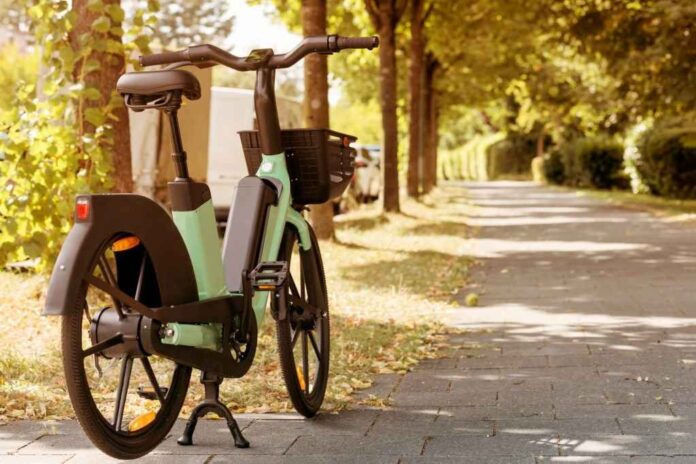In an era characterized by increasing traffic congestion, environmental concerns, and the quest for more sustainable transportation options, electric bikes (e-bikes) have emerged as a transformative force in urban mobility. E-bikes offer a compelling alternative to traditional cars, public transportation, and even regular bicycles, providing efficient, eco-friendly, and enjoyable means of getting around cities. This article delves into the rising popularity of e-bikes and their potential to reshape the future of urban transportation.
The Electric Bikes Revolutions
Electric bikes Ottawa are bicycles equipped with an electric motor that provides pedal assistance. They amplify the rider’s pedaling power, making it easier to navigate hilly terrain, cover longer distances, and maintain higher speeds with less effort. E-bikes come in various styles, from commuter models designed for city streets to rugged off-road e-mountain bikes for adventurous riders.
The Electric Bikes Boom in Urban Areas
E-bikes have gained popularity in urban areas due to their convenience, allowing users to navigate through traffic with ease and avoid parking issues, which is especially beneficial in cities plagued by congestion and limited parking. As an environmentally friendly option, e-bikes produce zero emissions, thus contributing to the reduction of carbon footprints and appealing to eco-conscious individuals.
In addition to the cost savings of minimal maintenance and low operational fees compared to cars, e-bikes provide health and fitness benefits; riders can still exercise by adjusting electric assistance levels based on their needs. Furthermore, e-bikes’ accessibility enables a diverse demographic, including seniors and those with physical limitations, to enjoy cycling. Lastly, e-bikes help decrease traffic congestion and relieve pressure on transport infrastructure by replacing car trips with more sustainable options.
Electric Bikes and the Sharing Economy
The growth of the sharing economy has expedited the widespread use of e-bikes in urban settings. Like their traditional counterparts, e-bike sharing schemes are becoming increasingly popular in numerous cities. These programs enable users to rent electric bikes for brief journeys, offering a versatile and accessible mode of transportation.
Urban areas that adopt e-bike sharing systems typically experience decreased traffic congestion, enhanced air quality, and improved movement for both residents and tourists. A majority of e-bike sharing schemes are connected to smartphone applications, allowing users to effortlessly locate and access e-bikes, which adds to their appeal.
E-Bikes Tackling the Last-Mile Dilemma
The “last mile problem” is a term used to describe the difficulty in linking transportation centers, such as train stations and bus terminals, to individuals’ final destinations. E-bikes have emerged as an effective solution for this issue. Commuters can rely on e-bikes for the remaining part of their commute, connecting public transport with their workplace or residence. This method not only conserves time but also diminishes car dependency for shorter journeys.
The Role of Infrastructure
To fully unlock the potential of e-bikes in urban mobility, cities must invest in e-bike-friendly infrastructure. This includes dedicated bike lanes, secure bike parking facilities, and charging stations for e-bikes. By creating a safe and accommodating environment for e-bike users, cities can encourage more people to choose this mode of transportation.
Case Study: Amsterdam’s Embrace of the Electric Bicycle Revolution
Often referred to as the “Bike Capital,” Amsterdam has wholeheartedly adopted the electric bike movement. The city’s level landscape and comprehensive array of cycling routes make it a prime setting for e-bike commuting. Electric bike usage in Amsterdam has surged, with both locals and visitors taking up these battery-powered mounts.
The Dutch metropolis has rolled out numerous programs to encourage e-bike adoption, such as offering incentives for e-bike purchases, increasing bike parking accommodations, and developing electric charging facilities. Consequently, Amsterdam has not only decreased traffic gridlock but also enhanced air purity and elevated the general living conditions for its inhabitants.
The emergence of electric bikes is transforming the urban transport landscape. E-bikes present a sustainable, efficient, and pleasurable means of travel that tackles various issues faced by city-dwellers like traffic congestion, air contamination, and last-mile challenges. As more individuals realize e-bikes’ advantages, these electric mounts are becoming a vital component of urban transit systems.
Although e-bikes may not be universally suitable, they play a critical part in supplying an alternative to automobile-focused urban transportation. Metropolitan areas investing in e-bike facilities and welcoming the electric bike wave are not only bettering their residents’ daily commutes but also contributing to a cleaner and eco-friendly future. With the mounting momentum of the e-bike trend, it’s evident that electric bicycles hold a significant place in tomorrow’s cities.

